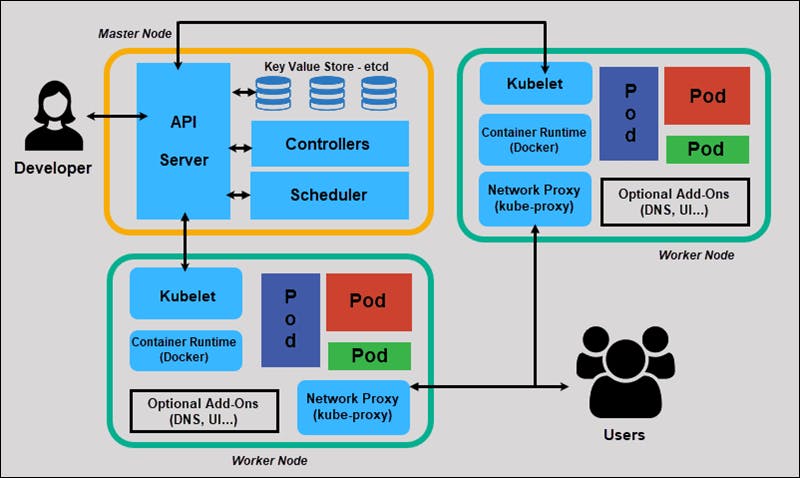Hi there!
It's your girl, Sec Cloudess and I hope you've had a great week.
So we will be looking into Kubernetes. Let's begin:
For many, like me, being relatively new to the Cloud/Cloud Native environment, the term Kubernetes or K8s is very common.
WHAT IS KUBERNETES?
Kubernetes is the most widely used container (Containers (hashnode.dev)) orchestration system for deploying, managing and scaling containers; it can be used anywhere without needing to change operational tooling.
Kubernetes is an open-source containerization orchestration platform for automating deployment, scaling and management of containerized applications, i.e. it automates container operations by eliminating the manual processes involved in deploying and scaling containerized applications.
One great thing about Kubernetes is that it has no downtime so it is always accessible to users.
Kubernetes Architecture

To understand the Kubernetes architecture, you would need to know the meaning of these terms:
CONTROL PANE: It is a collection of various components that help us in managing the overall health of the cluster. Also the entry point for all administrative tasks.
And it comprises four (4) parts:
1. The API SERVER: The API Server is the interface for handling, developing, and configuring Kubernetes clusters.
2. The Control Manager: This detects abnormalities and helps operations run efficiently and smoothly.
3. ETCD: This is a key value store of a cluster state.
4. The Scheduler: This assigns workloads to the nodes by first looking at how many resources applications require before assigning accordingly.
Benefits of Kubernetes
1) It scales containers easily to your desired state.
2) It makes workloads portable.
3) As an open-source project, adding new functionality to Kubernetes is easy.
4) Kubernetes makes it easy to deploy workloads in multi-cloud environments/
5) Kubernetes is a community-led project and fully open-source tool (at one time, the fastest-growing open-source software ever), meaning there is a huge ecosystem of other open-source tools designed for use with it.
CONCLUSION
Kubernetes or K8S has gone a long way with assisting DevOps engineers with building and running applications.
I would strongly suggest and advise that anyone interested in the DevOps career pathway take training from Kubernetes Learning Center | Ambassador Labs (getambassador.io)
It provides hands-on labs that enable faster learning and understanding.
I hope you found this article useful. If you have questions or concerns, please drop them in the comment session.
Ciao!

